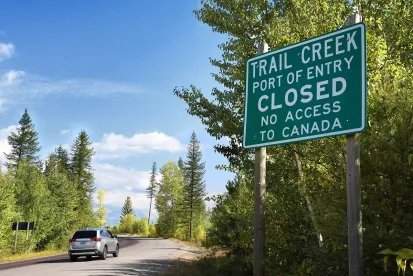There has been a major development in the ongoing legal fight over the ability of the Mill Creek Metropolitan Park District in Mahoning County to condemn private property for its bikeway project.
While previous efforts to stop the bikeway focused on a newly passed state law providing that a park district cannot take property for a recreational trail in counties with populations of a certain size (i.e., the size of Mahoning County), the property owner in The Board of Commissioners of the Mill Creek Metropolitan Park District v. Hess tried a different tack, arguing that the statute authorizing park districts to take private property by eminent domain (Ohio Revised Code 1545.11) did not permit a taking for a recreational trail. Rather, it only permits such a taking for “conversion into forest reserves and for the conservation of the natural resources of the state.”
Although the trial court was not persuaded by this argument, the Seventh District Court of Appeals was. The Court of Appeals focused its analysis on whether the taking was to conserve natural resources, ultimately concluding it was not, despite the expansive definition of what constitutes a “natural resource,” i.e., any natural element of feature that supplies human needs; contributes to the health, welfare, and benefit of a community; and is essential for the well-being of such community and the proper enjoyment of its property.
In reaching its decision, the Court found it significant that another section of the Ohio Revised Code expressly empowers the Department of Natural Resources to condemn property for recreational trails. Based on this explicit statutory authorization, the Court was unwilling to read an implied authorization to exercise eminent domain for the same purpose into R.C. 1545.11.
The Court’s ruling was also influenced by the fact that the land at issue was in “a rural area where it appears the public need is speculative at best and the harm to the private property owners is great.”
Finally, the Court pointed out that the purpose of public recreation was not sufficient to authorize the Park District to take private property, reasoning that simply because something provides recreation does not mean it constitutes the conservation of natural resources. In this regard, the Court analogized the recreational trail at issue to movie theaters, shopping malls, and bowling alleys.
Based on these considerations, the Court held that the resolutions to appropriate passed by the Park District were insufficient because they did not include any language tying the demand for the recreational trail to the conservation of natural resources. The Court further held that the Park District abused its discretion by filing an eminent domain lawsuit. Accordingly, the Court remanded the case to the trial court with instructions to enter judgment in favor of the property owner.
The Hess case demonstrates the well-established principle that statutory delegations of the power of eminent domain must be strictly construed in favor of property owners, and is a reminder to all eminent domain practitioners that the legal authority for a proposed taking must be closely scrutinized.



 />i
/>i
